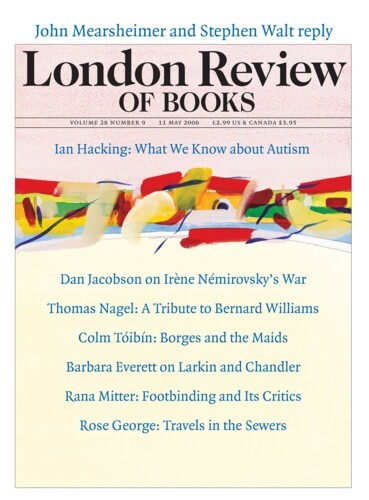Best at Imitation: Spain v. England
Anthony Pagden, 2 November 2006
At the beginning of the 17th century, the combined Spanish and Portuguese Empires – from 1580 until 1640 they were under one ruler and known collectively as the ‘Catholic monarchy’ – included, beyond the Iberian peninsula, Italy, the Netherlands, parts of southern France, the whole of America from California to Tierra del Fuego, the shores of West Africa, the...





